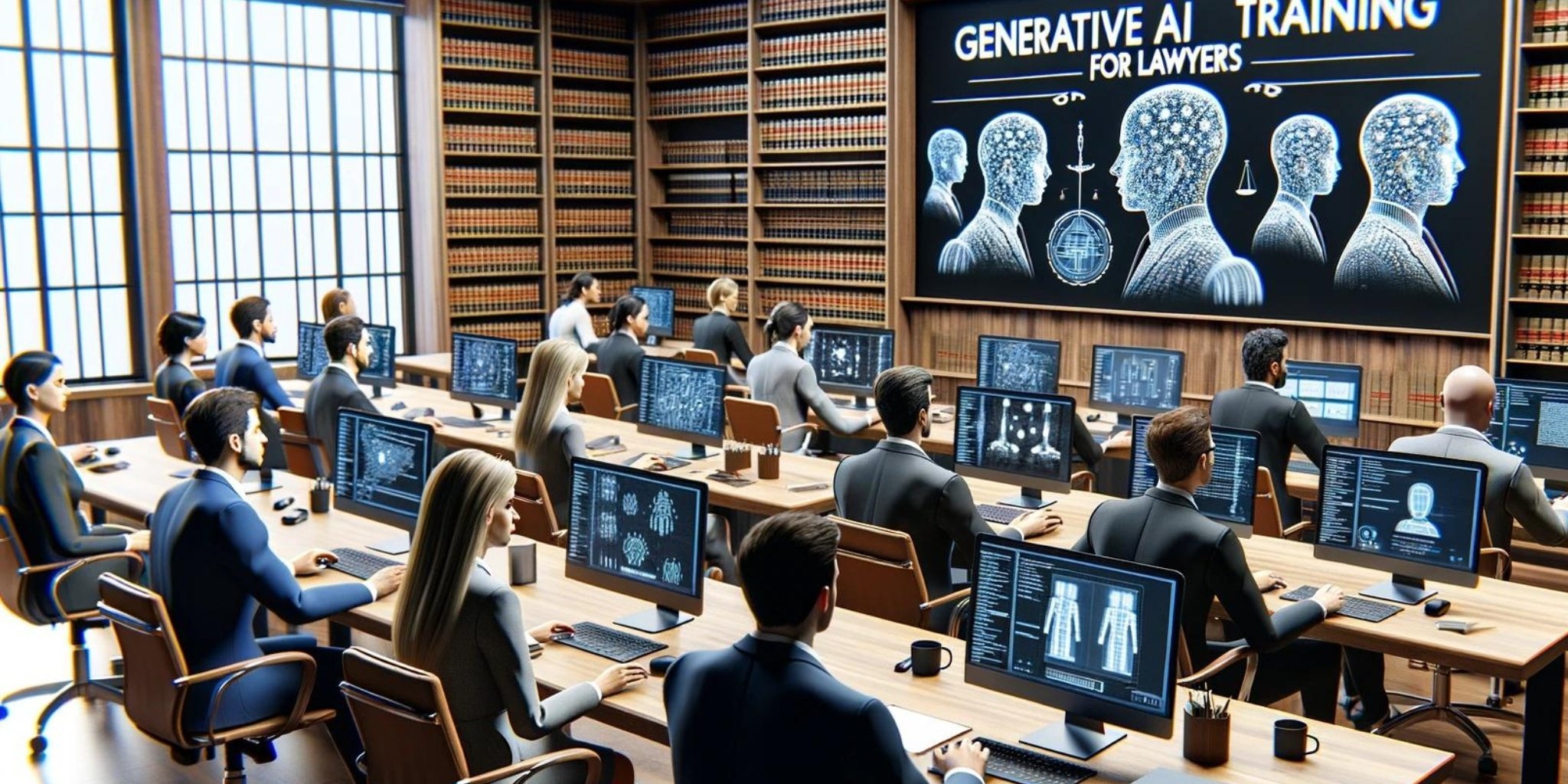
Generative AI initiatives are gaining momentum across the AmLaw 200, with more law firms exploring how best to integrate this new technology into their work. Whether firms are leveraging the much-publicized CoCounsel tool, another vendor’s technology, or deploying their own “closed” genAI system, lawyers need to know how to use gen AI effectively, efficiently and safely.
As AltaClaro has deployed our prompt engineering training to a number of forward-thinking law firms, we have had a front row seat to how generative AI training initiatives can be best implemented.
Read on for our tips for how to tackle a generative AI training initiative at your law firm.
1. Train Early in the Generative AI Adoption Process
Implementing prompt engineering training early in the adoption process of generative AI can significantly enhance the capabilities of a law firm’s workforce. Early training not only prepares lawyers to use these tools more effectively but also helps in identifying and addressing any potential challenges in their use. Ongoing training also ensures that the skills remain sharp and relevant as AI technologies and legal practices evolve.
2. Training Should be Tech-Agnostic
Interacting with generative AI requires that lawyers learn a new language: prompt engineering. Prompt engineering isn't merely about understanding how to work with a particular generative AI tool; it's about learning the critical thinking required to interact effectively with all AI tools, regardless of the vendor. This form of training equips legal professionals with the skills to ask the right questions and frame their inquiries in ways that harness the full potential of AI technologies. Much like mastering Boolean search in legal databases, prompt engineering is like a new language and is an essential skill set for the modern lawyer.
3. Offer Hands-On Training
Law firms should approach prompt engineering training with a focused, hands-on strategy to truly prepare their lawyers and allied professionals. Successful adoption of generative AI involves more than just sporadic training sessions. Law firms need to embed continuous, hands-on learning experiences that enable lawyers to practice, receive feedback, and refine their approach. Watching tutorial videos or attending brief seminars is not sufficient. Like learning to swim, prompt engineering requires diving in and engaging with the process directly.
We have seen success when law firms develop comprehensive training programs with specific modules tailored to different legal domains such as transactional law, litigation, and legal support services. This structured approach ensures that all professionals are not only familiar with AI tools but are proficient in leveraging these technologies for their specific areas of practice.
4. Strong Leadership and Collaborative Effort are Needed
The most effective training programs involve collaborative efforts among various groups within a firm. This includes Professional Development, Knowledge Management, Innovation, and Practice Group leaders. By fostering a cross-functional approach, firms can ensure a holistic integration of AI that enhances efficiency and service delivery across all levels.
A firm-wide commitment to generative AI adoption and training is crucial. It is essential for senior leadership to endorse these initiatives, setting a tone that reflects the importance of advanced technology training. The “tone at the top” from firm leadership must be that generative AI training initiatives are taken seriously and are integral to the firm’s overall AI strategy.
5. Understand the Nexus to Talent and Recruiting
In today’s competitive legal market, offering training in cutting-edge technologies like generative AI is an attractive proposition for current and prospective employees. Law firms that demonstrate a commitment to innovation and professional development are more likely to attract and retain top talent, especially among newer generations of lawyers who value technological proficiency. Firms should understand the landscape of AI adoption and expectations among associates and prospects so that they can effectively communicate their strategies regarding the newest technologies.
6. Have a Plan
Any generative AI adoption and training initiative should be part of a larger, firm-wide master plan on AI experimentation, adoption, training and policies. A plan doesn’t need to be fully formed in order for firms to roll out training initiatives, and many firms are still in the experimentation phase with this technology. Even in experimentation mode, a firm should have a committee and a plan for the aims and goals of experimenting with and adopting AI. The firm’s AI committee should be first in line to obtain meaningful, serious training on leveraging genAI.
Conclusion
As law firms continue to navigate the complexities of generative AI integration, AltaClaro is a dedicated partner in providing comprehensive, vendor-agnostic prompt engineering training that teaches critical thinking skills. We help law firms not only adapt to the changing technological landscape but also lead in efficient, safe and effective harnessing of leading-edge tech.
For more on how to implement generative AI and prompt engineering training in your law firm, read our white paper.
Ready to Train on Generative AI?
There’s a reason why firms such as K&L Gates, Orrick, Herrington & Sutcliffe, Allen & Overy, and Ropes & Gray trust AltaClaro for their legal skills training, including on new skills like prompt engineering.
With AltaClaro, you can get your associates interacting with the newest technologies more efficiently, ethically and safely, increase training retention and engagement, and save on training resources. Our online courses help lawyers learn practical legal skills in a hybrid format through mock transactions and live feedback sessions with seasoned practitioners. From programs in Prompt Engineering to M&A Transactions and Corporate Transactions, Capital Markets, Lending Transactions, Real Estate, Startup/Venture Transactions, and IP/Technology Transactions, our course catalog spans beginner to intermediate level classes.
Interested?
Schedule a free 30-minute consultation with one of our experts and learn how you can empower your associates to hit the ground running.

